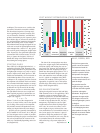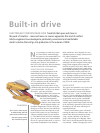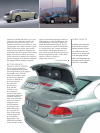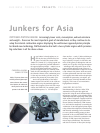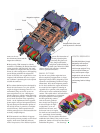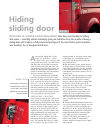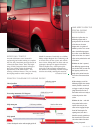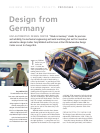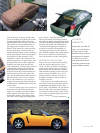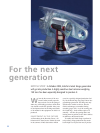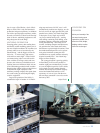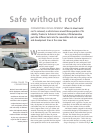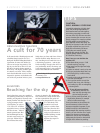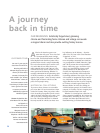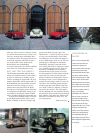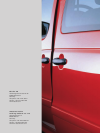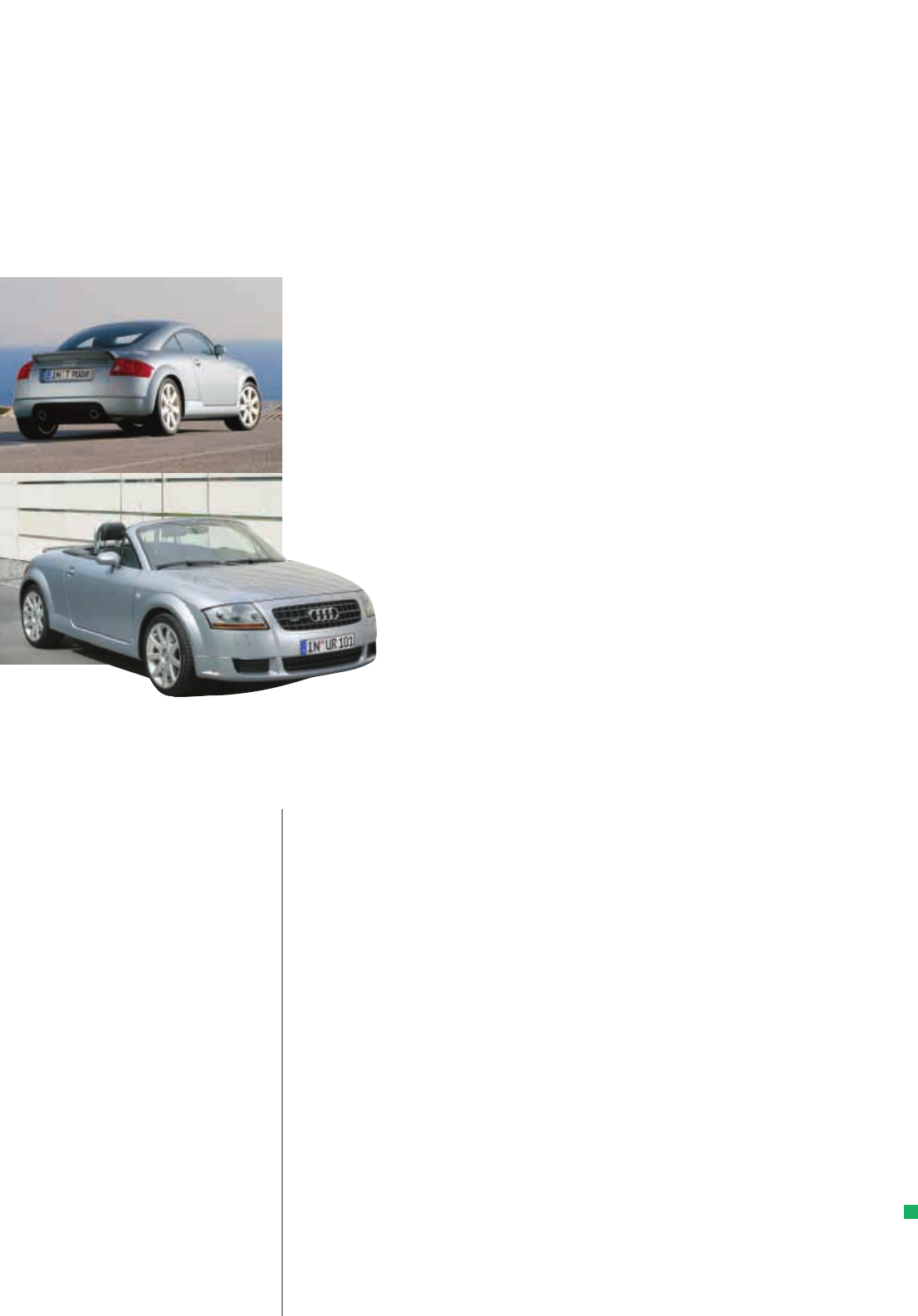
hen was the last time you got exa-
sperated by an attempt to stow your
collected odds and ends in an open
shoe box and carry it around with
you? With its lid on it was relati-
vely stiff. But now, without the
lid, it gets distorted and mis-
shaped, and it doesn't give your
treasures much support.
A similar thing happens when a
coupé loses its sheet metal roof. Both the flex-
ural strength and the torsion stiffness of the
body drop to around a quarter of the values
for the coupé – with drastic consequences for
driving dynamics, driving comfort and occu-
pant safety.
No convertible owner fancies being trapped
in his vehicle just because one wheel is up on
the sidewalk, thus distorting the body and
jamming the door – whatever the joys of fresh
air. And he'd probably be even less happy if
the forces of a frontal impact, instead of being
transmitted into the vehicle structure via the
roof, caused the A pillar to come alarmingly
close to his head.
A major challenge for the bodywork
experts at IVM Automotive, who are being
commissioned more and more often with the
body development of vehicle derivates like
convertibles: they have to compensate for the
lack of support from a roof, yet without sub-
stantially increasing the weight of the vehicle
or the manufacturing costs. This means that a
standard target figure of about 20 percent
additional stiffness-enhancing mass relative to
the closed vehicle is not exceeded; and also
that as many parts as possible from the original
series-produced vehicle can be used without
CONVERTIBLE DEVELOPMENT When its sheet metal
roof is removed, a vehicle loses around three-quarters of its
stability. Thanks to Technical Calculation, IVM Automotive
puts the stiffness back into the convertible and cuts weight
and development time at the same time.
Safe without roof
modification. The development time too
should of course be kept as short as possible.
This is why the bodywork development
process at IVM Automotive is now determined
by the Technical Calculation department. It's
only under their guidance that the heavy
demands placed on static and dynamic stiff-
ness and crash safety can be satisfied with a
short development time and with safe designs
in which problems don't go undetected until
the testing stage. The Technical Calculation
people first conduct simple potential studies
to pinpoint quickly and easily the areas in the
original body that need optimization. Then
the design team analyses the package and the
feasibility of these approaches. In detailed
calculations, the precise measures necessary to
achieve the target values are then ascertained.
An essential condition for this new method:
powerful computer hardware.
The designers too benefit from this ap-
proach; whereas in the past their concept pro-
posals could not be evaluated until much later
on in the process, nowadays this is often pos-
sible after just hours on the basis of the com-
putation results. Corrections and optimizations
can be incorporated very quickly into the
development work. A gain for everyone, and
particularly for the OEM: this method gives
him a few more months of time-to-market.
And there's another competitive advantage
of convertible design by IVM Automotive: co-
operation with the Convertible Roof Systems
division. The Edscha Group can optimize
both the body and the roof system at the same
time and at the same place – and in this way
offer convertible derivates as turnkey projects.
Jürgen Gumpinger, Dr. Gunther Wisinger
FROM COUPÉ TO
CONVERTIBLE
We don’t know which team of
vehicle developers transformed
the Audi TT coupe into a road-
ster. What we do know, how-
ever, is how much know-how
and effort it takes to optimize
a topless derivate in terms of
static and dynamic stiffness
and crash safety. At IVM Auto-
motive, this bodywork develop-
ment process is based on
modern simulation techniques.
By the way: at least the soft
top of the Audi TT roadster is
made by Edscha.
W
24



